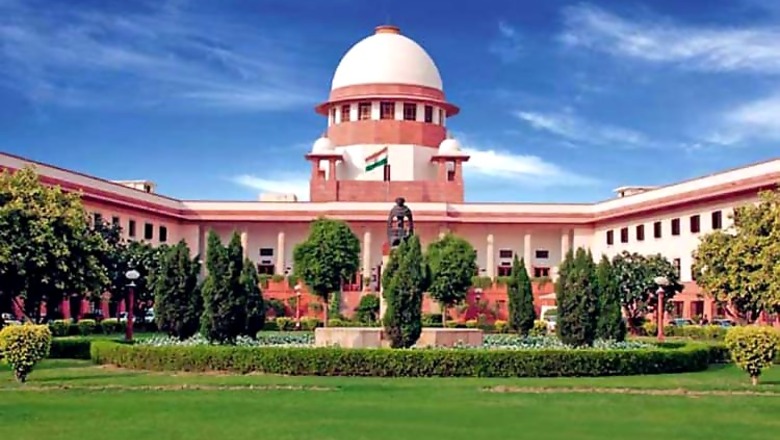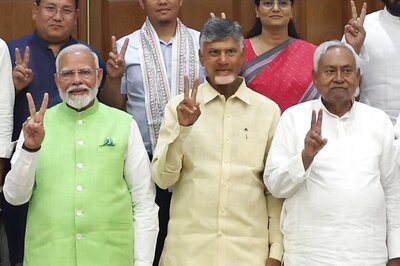
views
New Delhi: The Supreme Court on Monday stayed the Patna High Court order asking the Election Commission to fix the tenures of two, four and six years to one-third members each of a total of 24 Bihar Legislative Council members to be elected on Tuesday, saying this may be decided by draw of lots.
Refusing to stay the July 7 poll for the legislative council, a bench headed by Chief Justice HL Dattu accepted the suggestion given by the poll panel that the tenures of the elected members may be decided by draw of lots.
"We stay that portion of the order passed by the Division Bench of the High Court wherein the High Court has directed that 'the Election Commission, in consultation with the Legislative Council, Bihar, shall identify 1/3rd of the 24 seats earmarked for local authorities for a term of two years, another 1/3rd seats, for a term of four years and the remaining 1/3rd, for six years by issuing necessary notification, amendment or clarification, as the case may be, by 30th of June, 2015'," it said.
The poll panel, in its affidavit before the apex court, has submitted that "in the event of this Court holding and deciding that the members of the Legislative Council have to retire in proportion of 1/3rd members as per the provisions of Article 172 and the same should apply also to the category of candidates for the present election (category of candidates to be elected by local authorities/ panchayats/ municipal council/corporations) to the Legislative Council of Bihar.
"The Election Commission states that after the elections, the Election Commission shall then categorise the elected members into three categories (i.e. having term of 2,4 and 6 years respectively) by draw of lots in accordance with the decision or direction of this court."
The bench, which also issued notices on separate pleas filed by the Election Commission and the Bihar Legislative Council against the verdict of the High Court, clarified that its order will be "subject to the final result of these Special Leave Petitions" and fixed them for hearing after six weeks.
Earlier, the court had asked the poll panel to suggest methods which may be adopted in deciding the tenure of the 24 Bihar MLCs.
The legal impasse had arisen out of a Patna High Court verdict fixing the tenures of two, four and six years to one-third council members out of a total of 24.
The Bihar Legislative Council, in its appeal, had said that earlier, one-third members of the 24 member Bihar Legislative Council, a permanent house like Rajya Sabha, used to retire after every two years.
"However, from 1978 to 2002, elections to local bodies were not conducted in Bihar and hence, all 24 seats remained vacant. Ultimately, when the local bodies' elections took place in 2003, the members of the Legislative Council were also duly elected and appointed for a term of 6 years from July 17, 2003 as there was no law enacted by Parliament curtailing their term.
"It is pertinent to note that the term of the candidates elected in 2009 is due to expire on July 7, 2015," the plea said.
The High Court, in an order on a PIL, had said that in order to ensure statutory compliance, the election to the legislative body be conducted in such a manner that one-third each of the members would have two, four and six year tenures respectively.
The Bihar Legislative Council, in its plea, had claimed that the High Court "interfered with the electoral process of the Legislative Council of the State and passed directions in a purported PIL that are unsupported by the law in this regard as it now stands."
Referring to constitutional and statutory provisions, it said the state legislative council was a "continuous body not subject to dissolution" and the elected members' term of office was for a period of six years.
The High Court "erroneously assumed" that by changing the pattern of the poll process by dividing the total number of seats into three sets, it was not interfering with the election process, expressly barred under Article 329 of the Constitution, the plea claimed.
"The impugned directions of delineation and earmarking of new constituencies, curtailment of term of certain sections of members, etc is clearly an interference in the electoral process not permissible under Article 329," the council had said in its plea.



















Comments
0 comment